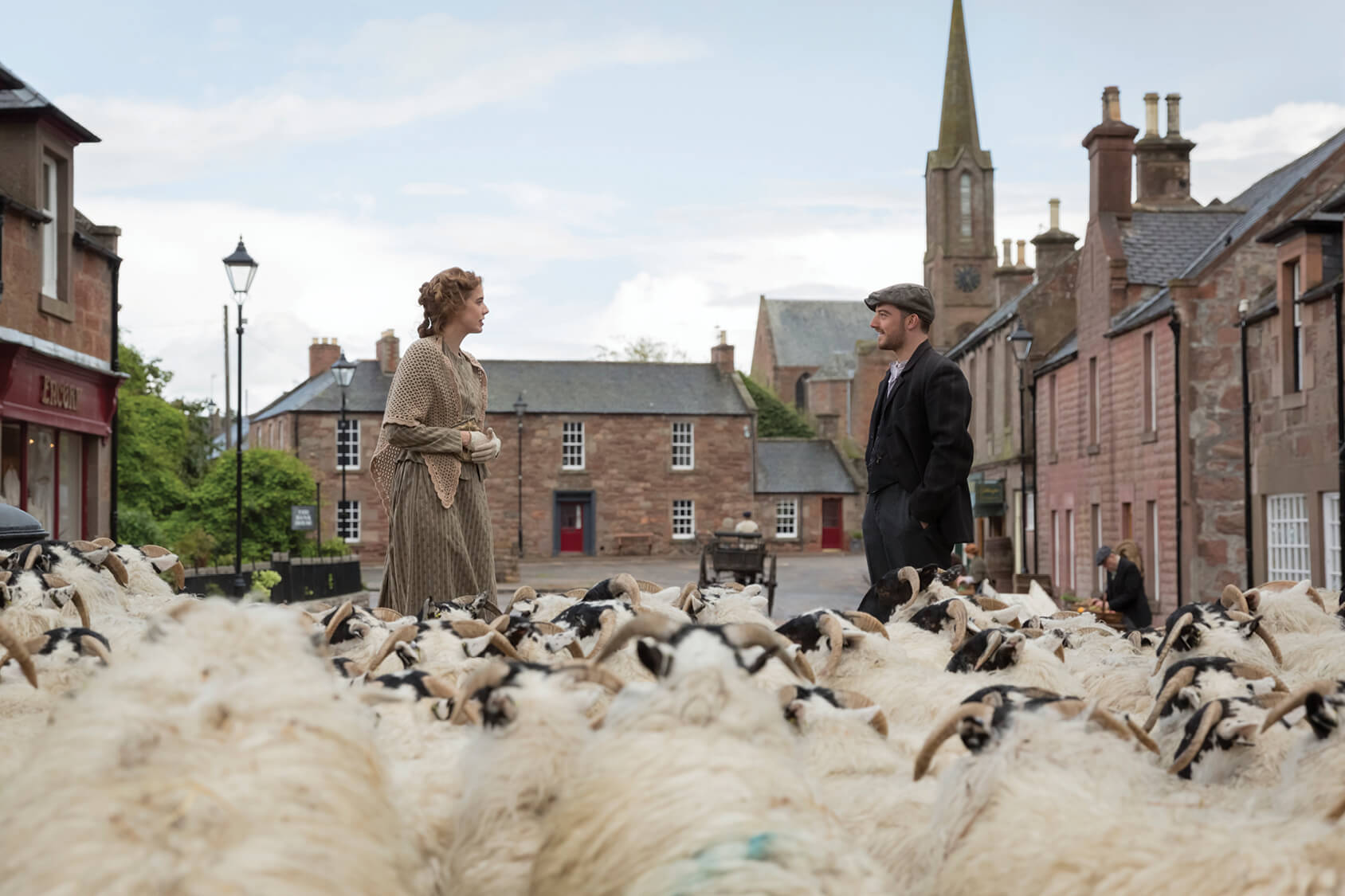Of Time and the Country: Sunset Song

Sunset Song
Directed by Terence Davies
Opens May 13
The arrival of a new Terence Davies film comes as an event and, in the past decade, as a relief, given the vagaries of film funding. “I’m older than God—but without any of the influence,” he joked recently to critic Michael Koresky. But 2016 brings a veritable bumper crop of Davies in the theatrical release of his Scots heartland saga Sunset Song and his Emily Dickinson story A Quiet Passion (which premiered in February at the Berlin Film Festival). Following the ardors of Deep Blue Sea, Davies’s late output finds him enamored of female protagonists in ages past as they assert their independence from the confinement of social expectations and, well, men. Sunset Song centers on a farmgirl whose coming-of-age in a grim family transitions into a scarring marriage, in Davies’ adaptation of the first novel in a 1932 trilogy by Lewis Grassic Gibbon. His choice of a Scottish classic offers another sign that he finds his richest emotional resonance in worlds past, which he continues to imagine with heartbreaking clarity.
Which is just as well, because in some period adaptations, it’s as if we’re meant to enjoy characters through the lens of modernity—Carey Mulligan as the appealingly strong-willed Bathsheba in Far From the Madding Crowd, for one recent example. Not that there’s anything inherently wrong with that, but as Chris Guthrie in Sunset Song Agyness Deyn always feels deeply rooted in the agrarian rhythms and the constrictive family mores of her time. Chris is under the thumb of a savage father (Peter Mullan) and wrung out by exhausting duties; her ever-childbearing mother, a picture of what the future might hold if Chris cannot pursue an education. In Deyn’s bearing and fortitude against unyielding surroundings, her independent-mindedness comes across elegantly, but we’re also aware of the physical danger of her adhering to her own path.
It’s not all trouble and strife: Chris finds love with a hale young man, Ewan (Kevin Guthrie), and breathes in the golden vistas of the countryside (shot by Michael McDonough with a near-meteorological sensitivity to the sky). And Davies orchestrates his most glorious sound-and-imagery, as ever, for scenes of community brought together, as in the wedding-song celebration of Chris and Ewan, the vintage of the music enfolding us in tradition as much as any stone wall or high-neck dress. Yet Deyn conveys how the personal resilience and self-sufficiency that let Chris come into her own also leave her with an unresolved tension with those around her. And with Ewan’s conscription in World War I, an unforeseen poison strikes her in the sanctum of her marriage, the madness of the Continent reaching all the way there.
Much of Davies most distinctive filmmaking has involved a reliving of and a reckoning with memory, which cinema allows him to retrace. For Chris in Sunset Song, the years of survival are a hard-won experience, memorialized in Davies’s filmmaking and redeemed by the possibility of understanding of what she has endured, but never short-changed for their day-to-day, bone-deep toil.
You might also like 



















